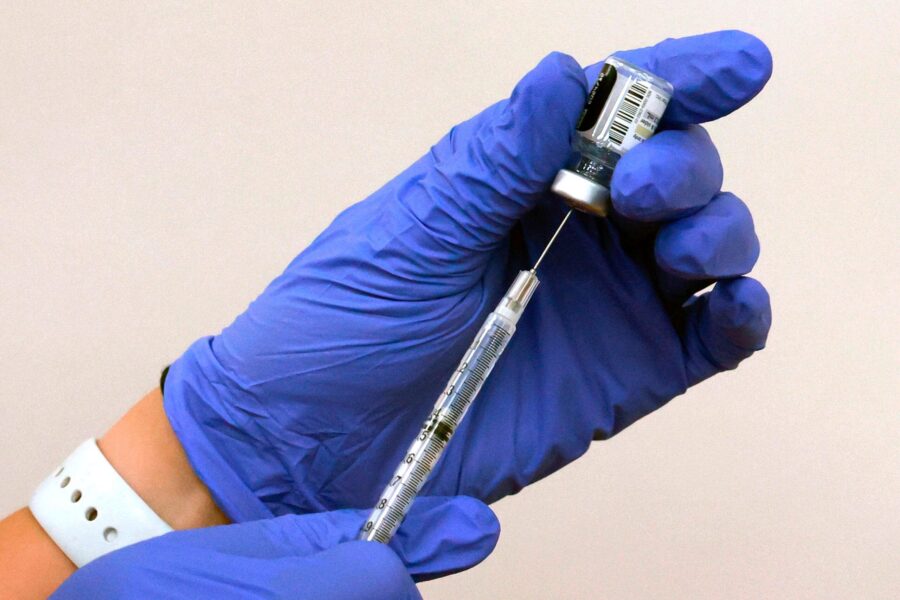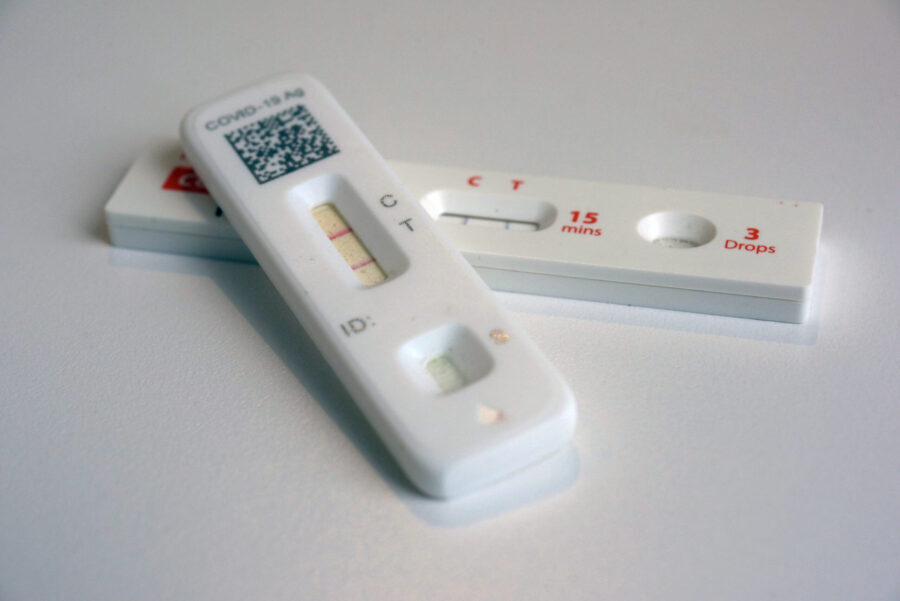Japanese Medical Workers Fear The Worst As Coronavirus Cases Spike
Apr 17, 2020, 8:43 PM
(CNN) — Ayako Kajiwara is scared Japan’s medical system isn’t prepared for what might happen next.
She’s the lead nurse at a hospital in Saitama prefecture and is witnessing firsthand the strain on an intensive care unit that’s treating critically ill coronavirus patients.
“It’s hard because we think the patient is improving, but then they’ll suddenly take a turn for the worse,” she said.
In the past few weeks, Japan’s coronavirus cases have spiked — dashing hopes that the government’s initial virus response had succeeded in controlling its spread. As of Friday, Japan had 9,787 confirmed cases, including 190 deaths, according to John Hopkins University. On March 1, the country had 243 cases.
The sharp increase has prompted Prime Minister Shinzo Abe to extend the state of emergency from seven prefectures to the entire country. On Friday, he also promised to provide medical equipment such as surgical masks, gowns and face shields to hospitals struggling with acute gear shortages within a week.
Earlier this week, a team of government experts warned that Japan could have more than 400,000 coronavirus-related deaths if measures such as social distancing are not taken.
But most deaths, they warned, could result from a lack of ventilators.
The shortage of medical supplies became clear this week when Osaka mayor Ichiro Matsui urged people to donate unused raincoats for health workers to use as personal protective equipment, after they’d been forced to wear trash bags.
Experts say medical shortages combined with comparatively low testing rates and Japan’s lack of provision for teleworking threatens to create a potentially explosive uptick in cases.
Hospital Clusters
As Japan battled the virus, infection clusters are forming in hospitals, too.
On April 12, 87 new coronavirus cases were confirmed among doctors, nurses and inpatients at a hospital in Tokyo’s Nakano ward, according to the Tokyo metropolitan government. The increase of clusters in hospitals is particularly concerning, owing to the potential for further community transmission.
“It’s very important to move testing away from clinics and hospitals,” said Kenji Shibuya, director of the Institute for Population Health at King’s College London and a former chief of health policy at the World Health Organization (WHO).
“The lack of testing in Japan led to widespread community infection. Hospital workers are not prepared as they don’t know the infection status of the patient.”
In Yokohama, paramedic Sho Hayakawa has seen a steady increase in coronavirus patients at his hospital in recent weeks. As a father, he worries about bringing the virus home to his wife and toddler. “I do worry about contracting it, but I’m being extra careful,” he said.
Tokyo and Osaka have started transferring patients with mild coronavirus symptoms to hotels to alleviate the strain on hospitals, with other prefectures expected to follow suit soon. Hayakawa hopes similar measures will be implemented in Yokohama.
Anesthesiologist Mio Shin said that after her colleague had to self-quarantine because he worked with a doctor from another hospital who was suspected of having coronavirus, she took on his workload.
“Many doctors take shifts at different hospitals, so I felt like overstretched clinics across Japan were temporarily losing staff members as they unwittingly came into contact with people who didn’t know they had coronavirus,” Shin said.
She said that as more medical workers are needed to care for coronavirus patients, there will be fewer people to take on everything from cancer and infertility treatment to heart surgery and maternity care.
“I think people in Japan may not have realized how these absences will affect not only coronavirus treatments, but also everything from infertility and cancer treatments, as other medical workers are needed to care for coronavirus patients,” Shin said.
Cluster Approach Under Scrutiny
Since Japan recorded its first coronavirus cases in February, officials have focused on containing infection clusters rather than the widespread testing seen in countries such as neighboring South Korea.
Japan has only tested about 90,000 people, compared with more than 513,000 in South Korea, which has a population of 51 million, compared to Japan’s 126 million.
Experts suspect the infection rate could already be much higher than official statistics reveal.
Japan’s testing approach is geared towards pinpointing patients in need of urgent medical attention to avoid overwhelming hospitals. The country has the capacity to conduct up to 12,000 tests per day, but in reality does between 6,000 and 7,000, according to a spokesman from the ministry of health.
On Wednesday, the Tokyo metropolitan medical association announced it would establish up to 20 new testing locations. Eiji Kusumi, a doctor specializing in infectious diseases, said he had already signed up to administer them. “Once testing becomes available for people with more mild symptoms, we will likely see more coronavirus cases,” he said.
The government has repeatedly stressed confidence in its testing strategy.
“We are continuing to focus on the cluster approach as we are not seeing an overshoot in coronavirus cases yet,” a health ministry spokesman said.
However, in some cases, Japan hasn’t been able to trace the cause of infection. When Tokyo recorded 197 new coronavirus cases last Saturday in its second highest single-day jump, for example, officials were unable to track down the source for 77% of the cases, according to the Tokyo metropolitan government.
“In big cities it’s very difficult to contain and keep track of (infection) clusters as there will be various routes of transmission,” said Shibuya, the former WHO official.
To contain clusters, health workers must interview people who have tested positive to deduce how they became infected. However, given coronavirus can survive on surfaces like doorknobs and light switches, it is often difficult to determine how people contracted the virus, Shibuya said.
The focus on containing clusters worked in the early stages when the infection rate was still low and localized, but as healthcare systems are under increasing pressure, there is an urgent need to reassess this strategy, he added.
Need To Shift Public Messaging
Takayuki Miyazawa, a virologist at Kyoto University, said that to contain the virus, the government needs to be honest with people about what life with the virus will look like for the forseeable future: specifically, a lot of social distancing and remote working.
“Politicians are giving people too much hope and telling them to endure the state of emergency just until May 6 when it is expected to lift,” said Miyazawa. “So people think all this will be over by May 6, but they haven’t understood the reality — that we have to keep having to keep up our guard up against the virus.”
Lead nurse Kajiwara said her hospital established an intensive care unit dedicated to coronavirus patients in early April, but with only six beds — half of which are occupied — Kajiwara fears they’ll soon be overwhelmed.
Nationwide, Japan only has seven ICU beds per 100,000 citizens, compared to 35 per 100,000 citizens in the US, according to the Japanese Society of Intensive Care.
There is also a concern around equipment shortages. According to information provided by the country’s Society of Respiratory Medicine, there are only 22,000 ventilators for a population of over 126 million. In late February, 40% were in use.
Kajiwara said her team was doing everything possible to care for patients, knowing that some won’t make it and that they themselves also run the risk of infection.
“I want to hold onto hope,” she said. “The whole experience made me think that we lived so comfortably in Japan and took many things for granted. I think people are realizing what they need and what’s really important to them now.”
The-CNN-Wire
™ & © 2020 Cable News Network, Inc., a WarnerMedia Company. All rights reserved.











